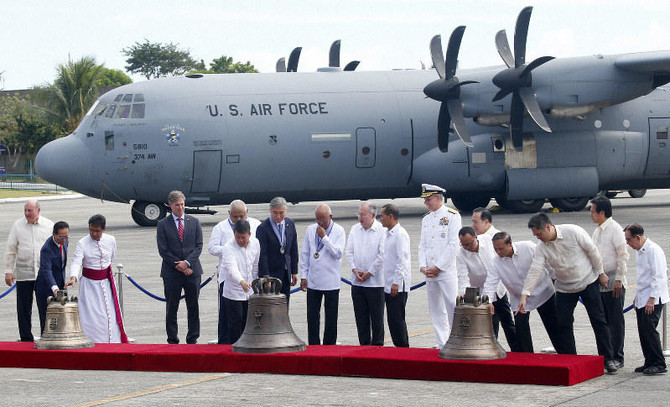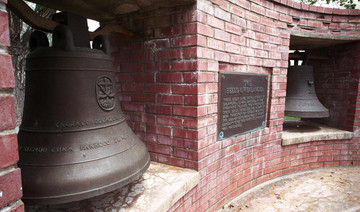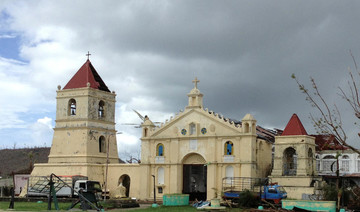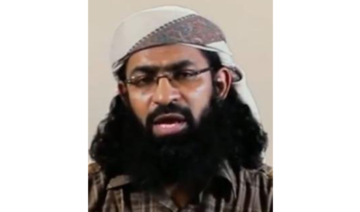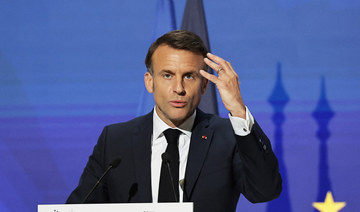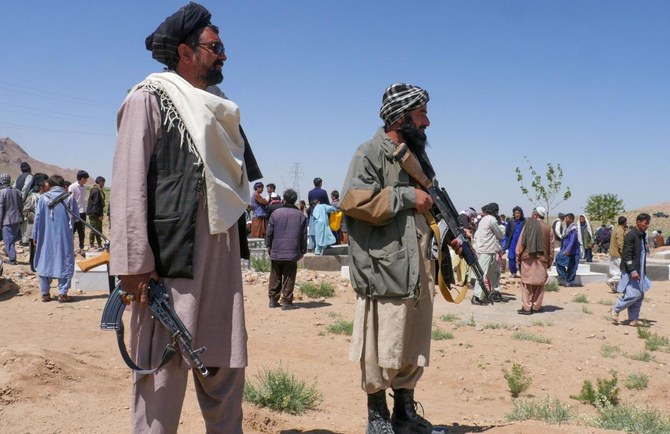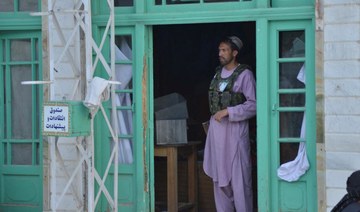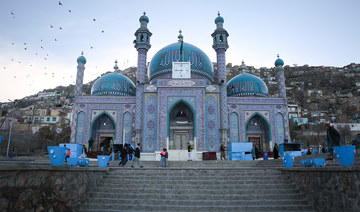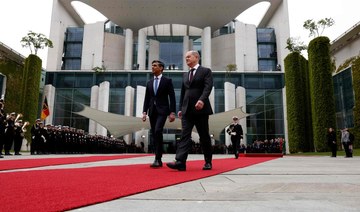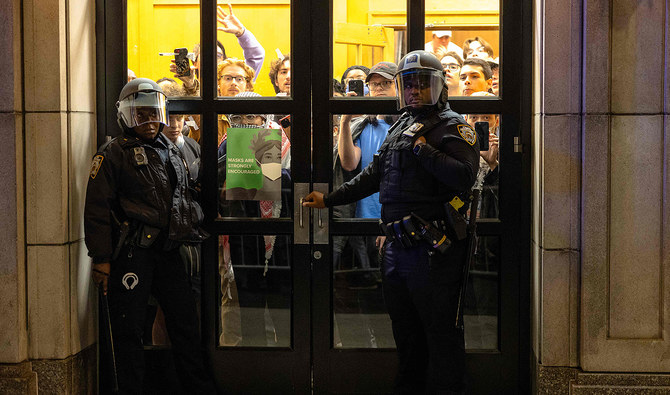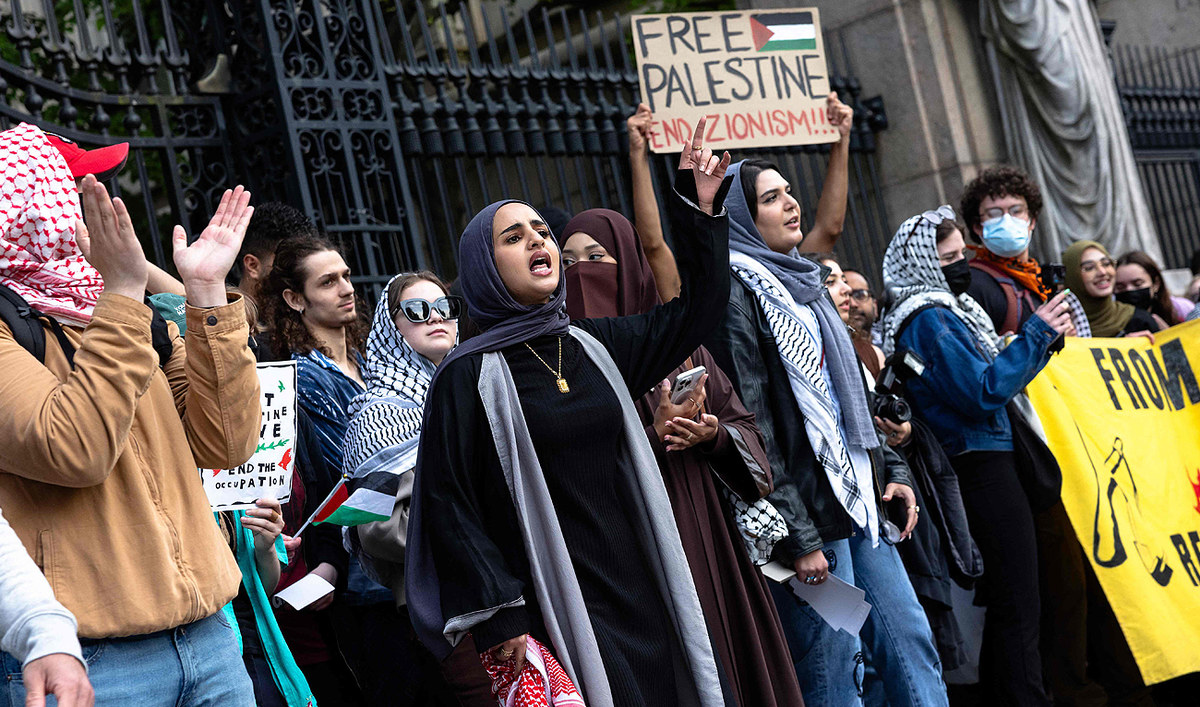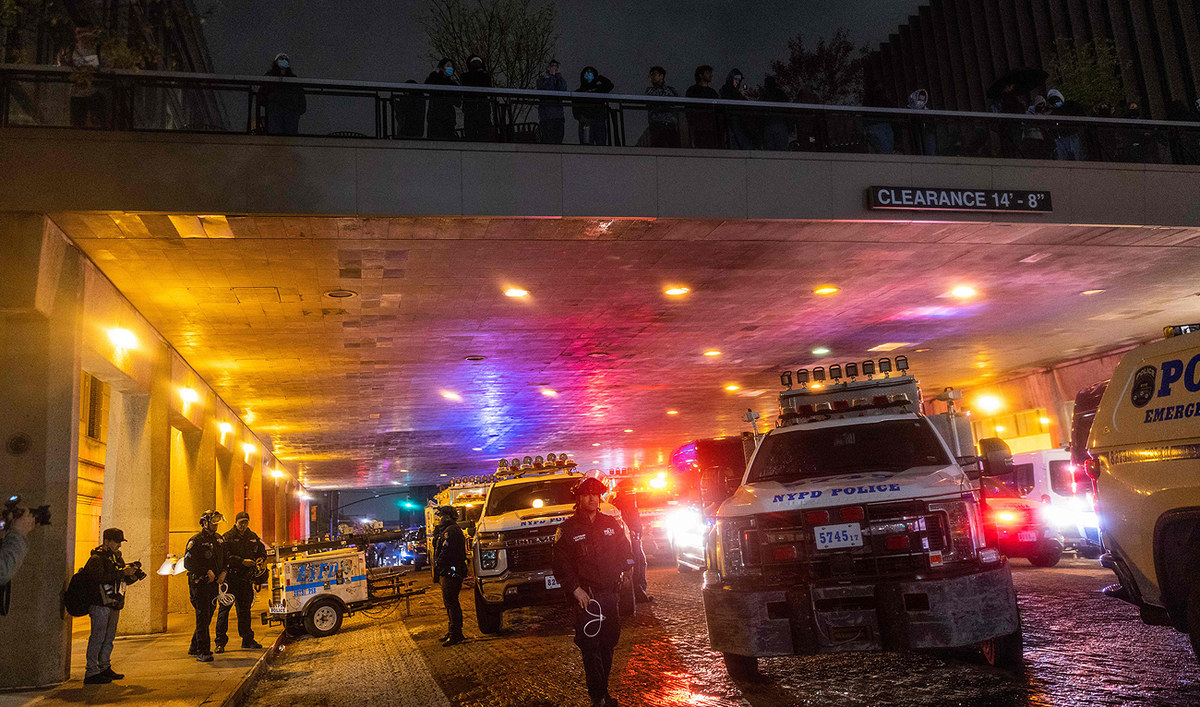MANILA: Three church bells taken as war trophies by US troops more than a century ago are back on Philippines soil, closing a dark chapter in relations between the two countries, who are now treaty allies.
At 10:30 a.m. on Tuesday, the three bells of Balangiga arrived at Villamor Air Base in Pasay City, transported by an American C-130 Hercules cargo aircraft.
After they were unloaded in front of the air base grandstand, Philippines Defense Secretary Delfin Lorenzana received the relics from US Ambassador to the Philippines Sung Kim.
Prior to the historic handover, the bells were inspected by Lorenzana and Kim who were joined by US Deputy Assistant Secretary of Defense for Southeast Asia Joseph Felter, Philippine Ambassador to the US Jose Manuel Romualdez, and Filipino and American military officers.
“The return of the bells of Balangiga lets us reflect on the US-Philippine relationship — where we have been, where we are, where we are going,” Kim said during the ceremony.
He said that the bells had been on a “very long road home.” Many Filipinos and Americans, he added, worked tirelessly for decades to make the return of the bells possible.
It has taken more than five decades’ of initiatives and stalled negotiations before the historical relics were returned to Philippine soil. The efforts began in 1957 when Father Horacio Dela Costa wrote to American military historian Chip Wards seeking help in the return of the bells, then in the possession of the US Air Force.
Kim noted that since former President Fidel Ramos first raised the issue of the bells with President Clinton in 1993, nearly every Philippine president has pressed for their return.
In 2017, President Rodrigo Duterte made a forceful appeal for the bells’ return during his second State of the Nation address.
“I was there and heard his passionate call loud and clear,” Kim said, adding that Duterte followed up with a personal appeal to US Secretary of Defense James Mattis who, “like all of us here today, recognized that returning the bells is the right thing to do.”
“By returning the bells, the United States could restore to its friend and ally an important symbol of national independence and also demonstrate our commitment to a relationship of two sovereign nations, two equal partners, and mutual respect,” Kim continued.
The history of the bells spanned the entire relationship between the US and the Philippines, he said. “In the process, they have touched many lives. And their return underscores the enduring friendship between our countries, our shared values, and shared sacrifices,” he said.
“The bells before us are the original bells that hung in Balangiga’s San Lorenzo de Martir church. The history of these bells spans the entire relationship between the United States and the Philippines,” Kim said, adding that their return “reflects the strong bonds and mutual respect between the Philippines and United States and its peoples.”
“The bells of Balangiga are home now, in the Philippines, where they belong. Secretary Lorenzana, please take them to the people of Balangiga and to the Church of San Lorenzo de Martir. May they ring in peace and bear testament to the ties and values which bind our two great nations for generations to come,” he said.
Lorenzana, in his speech, noted that the bells have come to symbolize a painful episode in the history of both the Philippines and the US during the Philippine-American war.
“How could a mere three church bells evoke so much intense emotion among Filipino and Americans? Maybe because we human beings live by symbols such as the national flag and in this instance, these bells. It is a symbol of our unity and identity of ourselves,” the secretary said.
“And now they are home, they are going back to where they belong,” Lorenzana continued, adding: “It is time for closure. It is time to look ahead as two nations should with shared history and allies.”
“The bells of Balangiga will once again peal. They will still remind people of what happened in their town square more than a century ago. But they would also look at that history with more understanding and acceptance,” the defense chief said.
Felter, when asked about the return of the bells, told reporters: “That is what allies do. This is what friends do.” The decision to return the bells, he continued, “was made for the Philippines as an ally and partner, in recognition of shared sacrifices and also in recognition of the future (the two countries) have.
“We know that it is an important issue for the Philippines ... It is giving the Philippines the respect that they deserve,” he said.
The tolling of the Balangiga bells on Sept. 28, 1901 during the Philippine-American War, signaled the launch by Filipinos of an ambush against Company C of the 9th Infantry Regiment, killing 48 and wounding 12 American soldiers.
In retaliation, Gen. Jacob Smith directed his men to turn Balangiga into a “howling wilderness.” He ordered the killing of all male Filipinos aged 10 years old and above, and the burning of the entire town. Around 2,500 Filipinos were killed in the US retaliatory attack.
American soldiers then took the three bells from Balangiga town as war trophies. Before they were returned to the Philippines, two of the three bells had been enshrined at Warren Air Force Base in Cheyenne, Wyoming, US while the third bell was at Camp Red Cloud in South Korea.
The bells will be flown to Balangiga town on Dec. 15.


